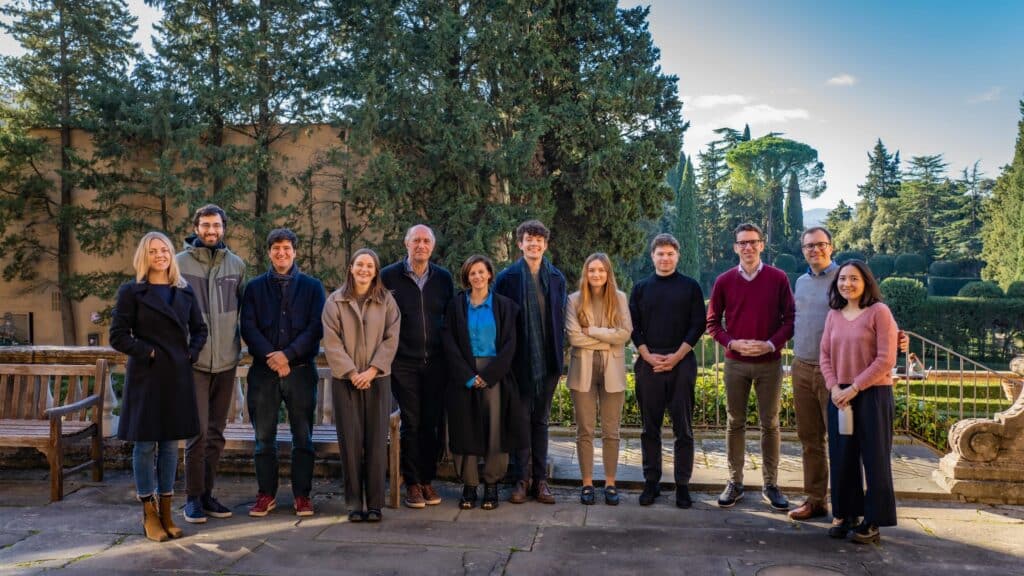The perspectives of gas utilities: which new skin will fit the “utility of the future”?
Written by Ilaria Conti
Gas utilities are facing the double challenge – among others – of decarbonisation and digitalisation, which are the main disruptive elements to the “old business model”.
Before the 2000s, in Europe, vertically integrated energy companies (often monopolies) would supply consumers in a foreclosed market. Then, the liberalisation process gradually opened gas and electricity markets – obliging the former incumbents to unbundling and to a fair competition with new entrants having the same market access rights.
Now, utilities must again face (and get ready for) a completely different scenario – which includes, first of all, the ability and the will to question the existing business model and think about how to respond to future challenges.
Following this theme, the FSR – together with Fondazione Enrico Mattei and Bruegel – organised a very interesting workshop on “ The future of energy utilities” (link to news article). A few months earlier, we supported the launch of a new study written by a team of researchers at the MIT and Comillas Universities titled “The utility of the future”.
While no “magic recipe” can be found in the Conclusions of either event, both were critical occasions of reflection and exchange of views between industry representatives, academics, institutions.
So which are the main challenges in this transformation, leading utilities to shed the old skin and acquire a new one? And which strategies might help them overcome the transition in a less painful way?
If they keep on merely surviving according to the “old business model”, gas utilities are condemned to be more and more confined to the role of simple “backup (to renewables) energy providers” and potentially, in the long-run, to extinction – as this role might even not be needed any longer.
At the same time, demand has changed – not only in numbers but also in structure – with the consumer having a much more active role in the energy sector, compared to the past. In fact, not only are consumers able to produce energy themselves (for example via solar panels) but they’re also better informed and proactive when it comes to energy consumption – so much so that we now talk about “prosumers” and “digital natives”.
Therefore, I believe gas utilities should at least ask themselves three questions:
- Decarbonisation in the European gas sector is a reality. In which markets should I invest, so that my gas can still be used as a useful source, and how?
- Increasingly, consumers are seen as key actors. Who are they, and to what extent do I take them into account in my business strategies?
- Innovation-Digitalisation. How digital am I? (how) Should I innovate?
The “new skin”, those gas utilities will necessarily have to wear when facing this new era should cover them from at least these three significant challenges.
At the same time, “promptness” is not the key word in this process. As Mr. Daniele Agostini of ENEL told us in a recent interview “it’s not essential for utilities to adapt fastly, but to rapidly make sure you have the instruments to compete in a fastly changing world”.
The key word is, instead, “flexibility”: flexibility in converting generation assets (where possible), flexibility in revisiting business strategies and alliances, and flexibility and openness towards change and in exploring brand new cooperation possibilities. For example with actors not traditionally belonging to the energy sector: telecommunications, transport, etc. Many companies are already exploring new ways, and Florence School will monitor and discuss the latest initiatives in a workshop in November (more details coming soon!).
Gas companies seem to be on their own in this fight for survival. While the energy policy future remains too opaque for big investments, in this context it’s hard to rely only on markets’ traditional capability to adjust themselves and to adapt to the new reality.
Little help from policymakers, little help from markets. So what’s the role of regulators in this scenario? Can the regulatory framework provide any help in the transition?
We’ll be discussing this third important “perspective” next week, as the last item of our Topic of the month. Looking forward to finding you again next Monday!






